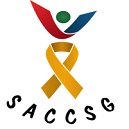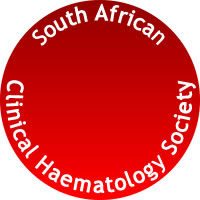Review Article
Holistic sexuality post gynaecological cancer treatment: A review of recent literature
Submitted: 05 April 2018 | Published: 28 June 2018
About the author(s)
Sorrel Pitcher, SAMRC Gynaecological Cancer Research Centre, Department of Obstetrics and Gynaecology, University of Cape Town, South AfricaTracey Adams, SAMRC Gynaecological Cancer Research Centre, Department of Obstetrics and Gynaecology, University of Cape Town, South Africa; Department of Gynaecological Oncology, Groote Schuur Hospital, South Africa
Leon van Wijk, SAMRC Gynaecological Cancer Research Centre, Department of Obstetrics and Gynaecology, University of Cape Town, South Africa; Department of Radiation Oncology, Groote Schuur Hospital, South Africa
Nazia Fakie, SAMRC Gynaecological Cancer Research Centre, Department of Obstetrics and Gynaecology, University of Cape Town, South Africa; Department of Radiation Oncology, Groote Schuur Hospital, South Africa
Rakiya Saidu, SAMRC Gynaecological Cancer Research Centre, Department of Obstetrics and Gynaecology, University of Cape Town, South Africa; Department of Gynaecological Oncology, Groote Schuur Hospital, South Africa
Lynette Denny, SAMRC Gynaecological Cancer Research Centre, Department of Obstetrics and Gynaecology, University of Cape Town, South Africa; Groote Schuur Hospital, Cape town, South Africa
Jennifer Moodley, SAMRC Gynaecological Cancer Research Centre, Department of Obstetrics and Gynaecology, University of Cape Town, South Africa; Cancer Research Initiative, University of Cape Town, South Africa; Women’s Health Research Unit, University of Cape Town, South Africa; School of Public Health and Family Medicine, University of Cape Town, South Africa
Abstract
Background: Sexual difficulties post gynaecological cancer treatment are commonplace and can impact multiple aspects of a woman’s life. Yet, health care practitioners remain reluctant to discuss sexuality from a holistic perspective with their patients.
Aim: This article reviewed the literature on sexuality post gynaecological cancer treatment from the last 10 years. The aim was to understand research trends as well as identify gaps in the field.
Methods: The review was framed using the neo-theoretical framework of sexuality. A comprehensive literature search, using the electronic databases EBSCOHost, Ovid, Clinical Key and PubMed, was conducted for articles concentrating on sexuality after gynaecological cancer treatment, published from 2007 to 2017 in English.
Results: The results showed that the majority of the literature still approaches sexuality post treatment from a biomedical perspective with a focus on physical sexual functioning. However, there has been a slight shift towards understanding sexuality from a comprehensive standpoint, although there is a dearth of research relating to the psychological and relational aspects of sexuality.
Conclusion: Comprehensive sexuality post treatment should be given further consideration in South Africa, and our unique socio-cultural context ought to be taken into consideration. Additionally, interventions at multiple levels should be explored, such as broadening sexual health training within the medical curriculum, considering the development of holistic cancer clinics and widening the scope of research relating to gynaecological cancer care.
Keywords
Metrics
Total abstract views: 3118Total article views: 4892
Crossref Citations
1. Sexual quality of life following a cancer diagnosis: a qualitative study
Lauren Haber, Andrew Allen, Karina T. Rune
Supportive Care in Cancer vol: 31 issue: 2 year: 2023
doi: 10.1007/s00520-022-07459-8



